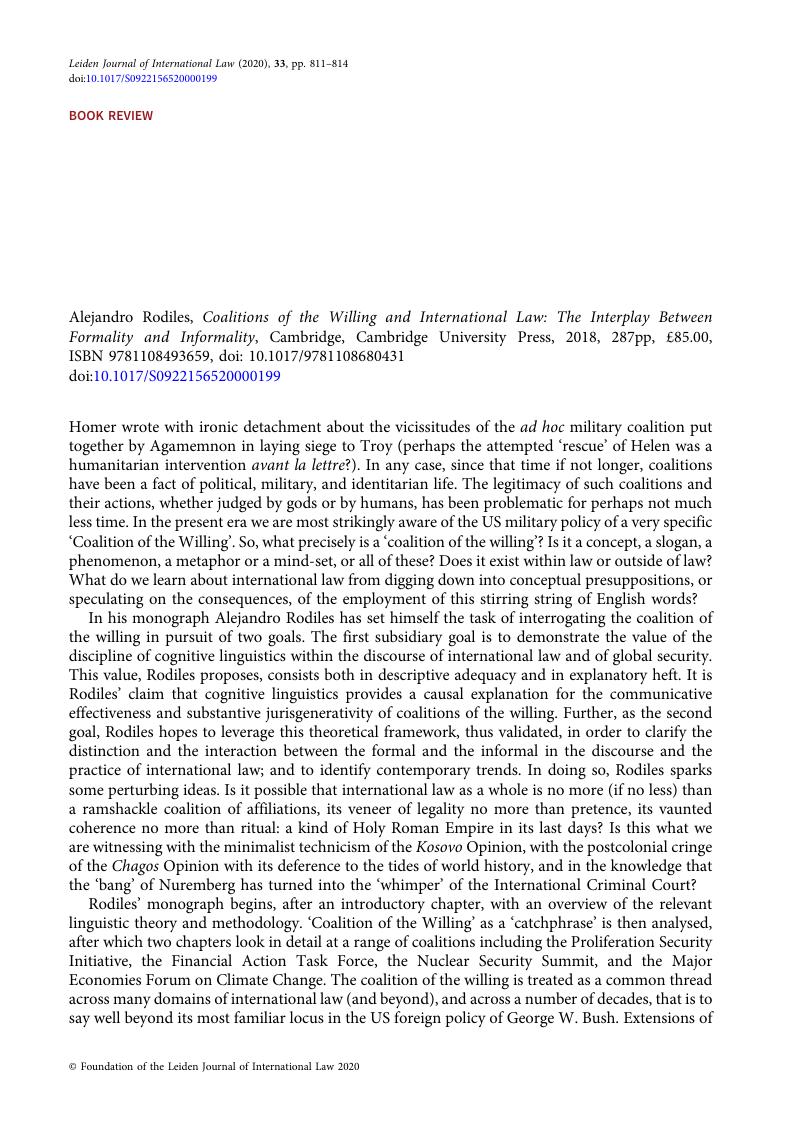No CrossRef data available.
Article contents
Alejandro Rodiles, Coalitions of the Willing and International Law: The Interplay Between Formality and Informality, Cambridge, Cambridge University Press, 2018, 287pp, £85.00, ISBN 9781108493659, doi: 10.1017/9781108680431
Published online by Cambridge University Press: 13 May 2020
Abstract

- Type
- BOOK REVIEW
- Information
- Copyright
- © Foundation of the Leiden Journal of International Law 2020
Footnotes
Deakin Law School [[email protected]].
References
1 Rodiles, A., Coalitions of the Willing and International Law: The Interplay Between Formality and Informality (2018), 91CrossRefGoogle Scholar.
2 Ibid., at 131, 224.
3 Ibid., at 253.
4 G. Lakoff and M. Johnson, Metaphors We Live By (2003).
5 Rodiles, supra note 1, at 28.
6 Ibid., at 17.
7 Ibid., at 13.
8 P. Sands, East West Street: On the Origins of Genocide and Crimes Against Humanity (2016).
9 Rodiles, supra note 1, at 42.
10 Ibid., at 34.
11 Ibid., at 76.
12 Ibid., at 249.
13 Ibid., at 44.
14 Ibid., at 72.
15 Ibid., at 71–2 (emphasis removed).
16 Ibid., at 39; A. Anghie, Imperialism, Sovereignty and the Making of International Law (2007).
17 Rodiles, ibid., at 114.
18 Ibid., at 111, 124, 153, 202.
19 C. Kenny and Y. McDermott, ‘The Expanding Protection of Members of a Party’s Own Armed Forces Under International Criminal Law’, (2019) 68 International and Comparative Law Quarterly 943, 951 (commenting on the ‘symbiotic and mutually reinforcing relationship between the ICRC and the ICC in expanding the scope of long-standing interpretations of international humanitarian law’).
20 O. Frishman and E. Benvenisti, ‘National Courts and Interpretive Approaches to International Law’, in H. P. Aust and G. Nolte (eds.), The Interpretation of International Law by Domestic Courts: Uniformity, Diversity, Convergence (2016), 317.


